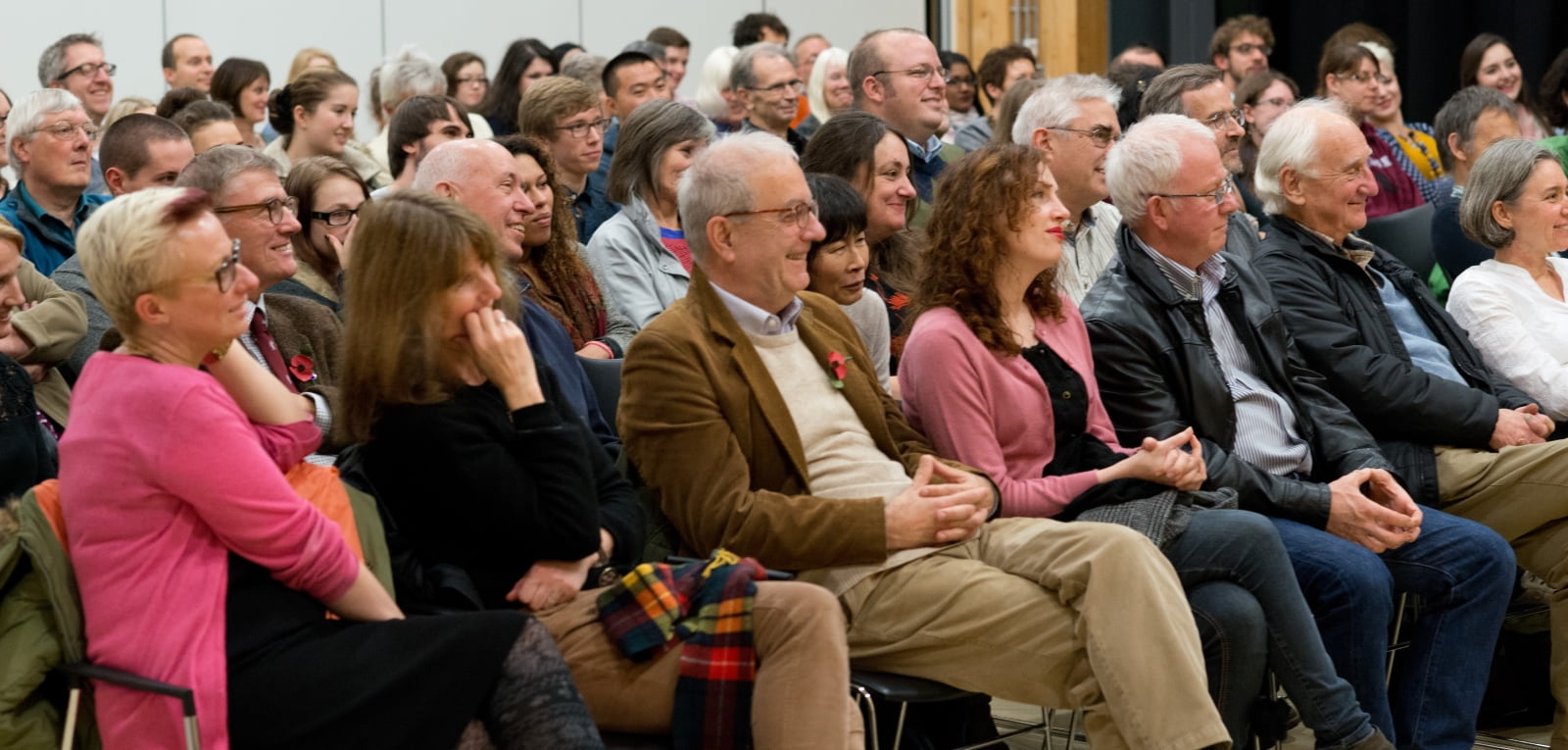Forensic anthropology in the real world
10/12/2018 - Professor Dame Sue Black OBE, Lancaster University


An international diplomat, a panel of Black British authors, an immersive and musical dramatic reading, and captivating talks from our own academics – just some recent examples of events that formed part of this year’s Public Lecture Series.
Our Public Lectures, which are free and open for all members of the public, staff and students to attend, are just one of the ways the University engages with communities, sharing research and its relevance to everyday lives. Lectures feature experts from Lancaster University and beyond to present and discuss various topics, all with the ultimate aim of being accessible, fun, thought-provoking and educational. All lectures include the opportunity to ask questions of the speakers and share your thoughts during a Question & Answer session.
We have lots of exciting and varied lectures in the pipeline for our 2024/25 series.
Watch this space for more or, to hear about upcoming lectures first, sign up to our Connect Newsletter. Signing-up means you’ll be the first to hear about the series and register for tickets before they’re released more widely. Our talks are almost always fully booked so make sure you sign up now!
If you’re unable to attend a lecture, don’t worry, the majority are recorded and available to view after the event here on our public lectures webpage.
We are delighted to make these videos and presentations available for later viewings or for your own use. If you use these in your work or research, we would be grateful if you would credit the University and/or the speakers. Thank you.
10/12/2018 - Professor Dame Sue Black OBE, Lancaster University

17/10/2018 - Dr Veronika Koller, Lancaster University

25/04/2018 - Dr Thaddeus Muller and Dr Gary Potter, Lancaster University

14/02/2018 Dr Adam Taylor, Lancaster University

8/02/2018 - Professor Ruth Wodak, Lancaster University

12/10/2017 - Charlie Adlard and Dr Andrew Tate, Lancaster University

8/11/2017 - Professor David Croisdale-Appleby OBE, Durham University

28/06/2017 - Professor Ian Chapman, UK Atomic Energy Authority

4 April 2017 - Dr Joe Finney and James Devine

16/03/2017 - Professor Jennie Popay

17/01/2017 - Professor Paul Farley and Prof Paul Muldoon

27/11/2016 - Professor Jonathan Tawn

27/10/2016 - Professor Sharon Ruston

27/04/2016 - Dr Derek Gatherer

21/04/2016 - Premier David Makhura, Gauteng City Region

22/03/2016 - Professor Sir Christopher Frayling

26/01/2016 - Professor Elena Semino

18/11/2015 - Andy Rubin and Dr Rodney Irwin

22/10/2015 - Professor David Allsop and Dr Penny Foulds

30/03/2015 - Professor Bill Davies OBE

11/03/2015 - Professor Jeffrey Richards

10/03/2015 - Lt Gen Professor Sir Edmund Burton, Professor Awais Rashid, Professor Nick Coleman, Dr Mike Short CBE, Professor Corrine May-Chahal

4/03/2015 - Rt. Hon Alan Milburn

11/02/2015 - Professor Roger Kemp

21/01/2015 - Professor Carolyn Jackson

27/11/2014 - Department of English and Creative Writing, Lancaster University

3/11/2014 - Dame Esther Rantzen, Rt Hon Paul Burstow, Pam Creaven and Professor Christine Milligan

18/09/2014 - Clare Amsel and The Very Reverend Dr John Hall

24/06/2014 - Dame Barbara Monroe, Dr Catherine Walshe and Sue McGraw

30/06/2014 - Professor George Pickett FRS and Professor David Lee
